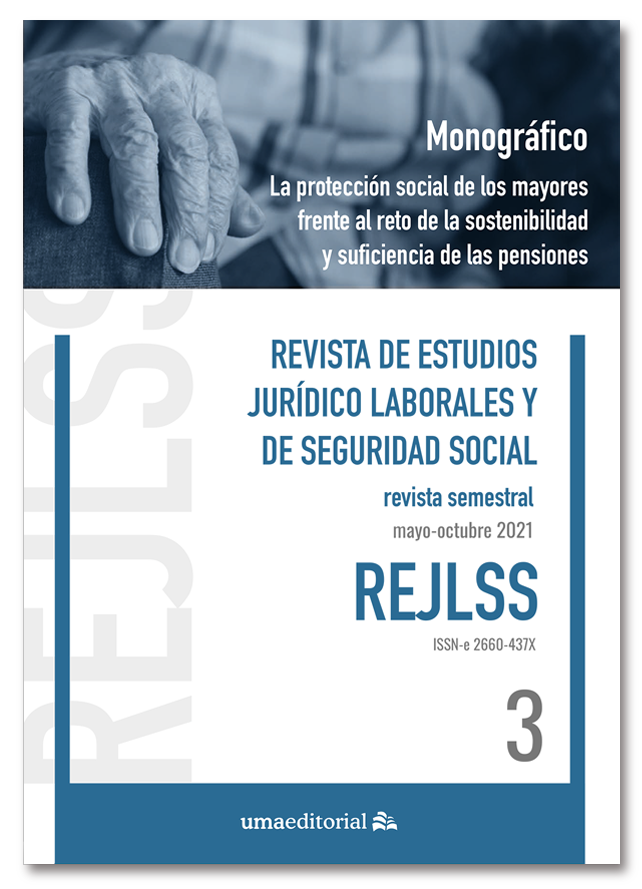Widow’s pension, gypsy marriage and debal couples
DOI:
https://doi.org/10.24310/rejlss.vi3.13543Keywords:
Gypsy marriage, widow's pension, domestic partnership, indirect discriminationAbstract
It is a constant judicial doctrine that unions by the gypsy rite do not produce civil effects and, therefore, do not generate the right to a widow's pension upon the death of one of its members. With the exception of the 2009 ECHR ruling, Muñoz Díaz v. Spain (known as "La Nena"), due to the particularities that concurred, based on the good faith of the contracting parties and the reasonable expectation created by the authorities of the Spanish State, the Supreme Court and the TC continue to deny access to the widow's pension , even in cases in which the deceased's death occurred after Law 40/2007, which for the first time made it possible for the surviving member of said couples to access the widow's pension. The particular vote published together with the judgment of the Supreme Court of January 25, 2.018, Appeal 2401/2016, reasons about the unnecessary of said requirement to unions celebrated in accordance with the uses and gypsy customs due to the particularities of said culture, strong family roots and unquestioned marital unity.
Downloads
Metrics
Downloads
Published
How to Cite
Issue
Section
License
In the Revista de Estudios Juridico Laborales y de Seguridad Social (REJLSS) we are clearly committed to a policy of open access to scientific knowledge (See Berlin Declaration).
Those authors who have publications with this journal accept the following terms:
This journal provides immediate free access to its content under the principle of making research freely available to the public. All the contents published in the REJLSS are subject to the Creative Commons license
Attribution-NonCommercial-NoDerivatives 4.0 International (CC BY-NC-ND 4.0)
Copyrights are of two kinds: moral and patrimonial. Moral rights are perpetual, inalienable, non-transferable, inalienable, unattachable and imprescriptible prerogatives. In accordance with Spanish copyright legislation, the authors who publish in REJLSS retain the moral right over their work, as well as the ownership of the patrimonial right, which will be transferred to the University of Malaga for its dissemination in open access.
The patrimonial rights, refer to the benefits that are obtained by the use or disclosure of the works. REJLSS is published in open access and is exclusively authorized to perform or authorize by any means the use, distribution, dissemination, reproduction, adaptation, translation or transformation of the work.
It is the responsibility of the authors to obtain the necessary permissions of the images that are subject to copyright.
Authors whose contributions are accepted for publication in this journal retain the non-exclusive right to use their contributions for academic, research and educational purposes, including self-archiving or depositing in open access repositories of any kind.
The electronic edition of this magazine is edited by the Editorial of the University of Malaga (UmaEditorial), being necessary to cite the origin in any partial or total reproduction.
The authors may adopt other non-exclusive license agreements for the distribution of the version of the published work (eg: deposit it in an institutional telematic archive or publish it in a monographic volume) provided that the initial publication is indicated in this magazine.
Authors are allowed and recommended to disseminate their work through the Internet (eg, in institutional telematic archives or on their website) before and during the submission process, which can produce interesting exchanges and increase citations of the published work.






19.png)
